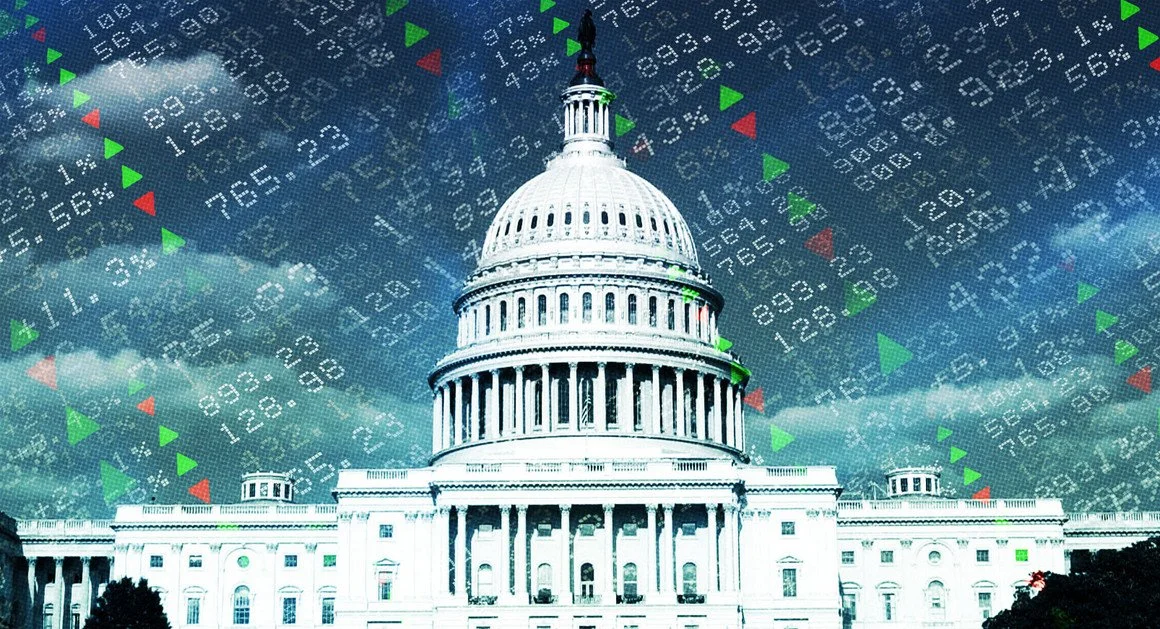Having Your Cake and Eating it Too: Congresses’ attempt to ban Congressional insider trading
In the upcoming lame-duck session, Speaker Nancy Pelosi said Democrats would put forward House legislation aiming to place new restrictions on Congressional stock market trading. Source for Photo: Close Up Foundation
It has been expressed in a bipartisan fashion, that members of Congress should be highly restricted if not completely banned from trading stocks. High profile legislators including Republican House Minority Leader Kevin McCarthy and Democratic Representative Alexandria Ocasio-Cortez have both expressed support in passing legislation to ban such market transactions.
One of the potential versions of the legislation, sponsored by Senators Jon Ossoff and Mark Kelly, stipulates that lawmakers, their spouses and dependent children would be prohibited from individually investing in stock, bonds, cryptocurrencies and other financial assets tied to particular companies. Alternatively, the legislation would also force members of Congress to divest or move assets into a blind trust, where they would have no involvement in managing the profitability of their investments and require lawmakers to provide detailed transaction summaries for permitted investments.
Although Speaker Pelosi did not specify the exact details regarding the legislation, she implied that this would be a “very strong” attempt to restrain current Congressmen and women's ability to engage in stock activity that creates competing interests.
Historically, insider trading laws – which ban individuals with insider information from trading and profiting off stock revenue – have not been applicable to members of Congress. Economists have studied the investment portfolios of Congressional members and found that they regularly outperform the stock market. And in the 2008 recession, some lawmakers took advantage of information afforded by meetings with the Treasury Secretary, Hank Paulson, and dumped stock in order to avoid significant investment losses.
Investing in the stock market is like a game where the goal is to accurately predict market trends in order to buy and sell stock at the opportune moment. Gaining additional expertise on market trends though a stockbroker can give investors a leg up when choosing what stocks to invest in. But having exclusive knowledge on topics like legislative policy or sensitive geopolitical intel creates an unfair advantage for federal legislators who may be investing in stocks. For many members of Congress who are actively investing in the stock market, it creates a major conflict of interest surrounding the politician’s political and moral integrity.
When the public found out about Congressional leaders making money from the 2008 stock market crash, Congress was forced to respond. This led to the passage of the Stop Trading on Congressional Knowledge Act or STOCK Act in 2012, which banned members of Congress from trading stocks based on private information and forced them to publicly disclose all of their trades within 45 days following transactions. Although this legislation seemed straightforward, sufficiently proving that Congressional members have engaged in illegal trade is very difficult. Furthermore, the penalty for violating the regulations is $200. So, the STOCK Act does not provide any incentives to follow the law and has done virtually nothing to prevent Congressional insider trading.
Yet concerns about Congressional trading are not recent. In 2006 Representatives Louise Slaughter and Brian Baird initially put forth the STOCK Act in reaction to House Majority Leader Tom DeLay facing insider trading allegations in the previous year. And since the act’s passage, it has only revealed that forced financial transparency is not enough to prevent legislators from engaging in insider trading.
Despite bipartisan support for new legislation banning Congressional insider trading and the current law in place that attempts to ban it, 72 members of Congress have recently violated the STOCK Act. Both Republican and Democratic House and Senate members alike have failed to disclose stock purchases worth hundreds of thousands or even millions of dollars. It was also revealed that some politicians and their spouses bought or sold stock at convenient times - prior to the COVID-19 outbreak in the United States in response to pharmaceutical companies manufacturing COVID-19 treatment - to maximize their investment profit.
While it’s certainly not in the personal interest of lawmakers to place stock trading bans on themselves, the hypocrisy surrounding current Congressional insider trading and the push to end it by lawmakers is telling. After years of extreme and increasing partisan divide, this seems to be one of the few bipartisan issues that both Democratic and Republican legislators are responding to based on broad constituent disapproval. And the reason why is clear. Anyone invested in the stock market is hurt by insider trading.
Unlike other political issues where some voters may be hurt by a particular agenda of politicians, there are typically enough voters who support the agenda to off-set a loss in political support. In the case of Congressional insider trading, lawmakers cheat the market at the expense of their constituents and allow them to reap the economic consequences. When over half of Americans are invested in the stock market, it leaves little to no alternative in who to draw political support from, in a majoritarian electoral system.
In a poll, it was found that 63 percent of voters - including Democrats, Republicans and Independents - believe lawmakers should be banned from stock trading. And this issue is one of the only instances where elected officials can’t escape blame for their political shortcomings. Because of this, voters are able to take back some institutional power that is otherwise diluted by the nature of two-party partisan politics, through the indirect threat of not voting for politicians who cheat the stock market, regardless of party.
Although banning Congressional insider trading is not an issue at the forefront of the upcoming midterm election, given the recent bipartisan support for such legislation by lawmakers and citizens, the consideration of substantial legislation aimed at tackling the issue will likely be addressed in the near future.

